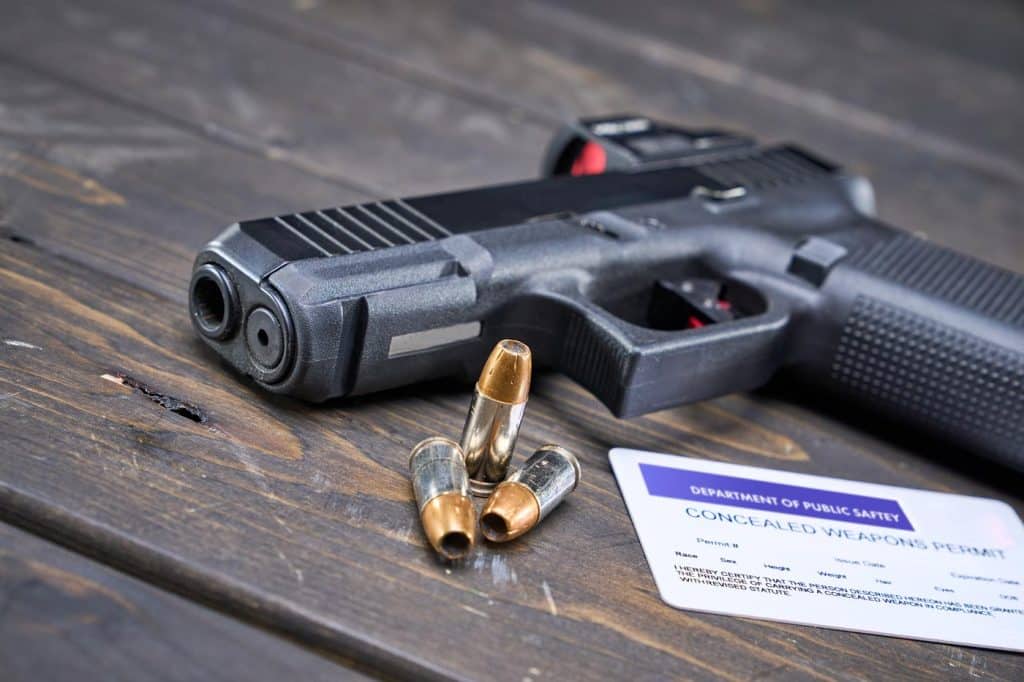In the heart of the Lone Star State, where individual freedoms are fiercely defended, understanding the intricacies of gun ownership laws is crucial for both seasoned and prospective gun owners. While the concept of a “gun license” can be a subject of confusion, Texas maintains its own set of regulations and permits, notably the Texas License to Carry (LTC). This guide aims to demystify Texas gun laws, providing a clear pathway for responsibly exercising your Second Amendment rights.
Introduction to Gun Licenses
The term “gun license” is often used interchangeably with concealed carry permits or licenses to carry across different states. It is important to know the difference between the two.
Gun License: In states that have a “Gun License”, this is generally referring to a licensing requirement to be able to simply own and purchase a firearm.
License to Carry / Concealed Carry License: This is referring to a license for carrying a handgun in public. In Texas, a License to Carry makes purchasing a firearm easier, but it is not required.
Understanding the distinction between these license types is pivotal in navigating the legal landscape of gun ownership in Texas.
Texas Gun License
Texas stands out for its straightforward stance on gun ownership. No state-issued license is required to own or possess a firearm in Texas. For those wishing to carry their firearm in public, either openly or concealed, obtaining an LTC is recommended, but not required.
It’s important to note that while Texas has permitless carry (sometimes referred to as constitutional carry), which allows eligible individuals to carry handguns without a license, the LTC still provides benefits like reciprocity with other states that recognize Texas permits. The LTC also allows holders to carry handguns in more places and with additional legal protections.
How to Obtain a License to Carry in Texas
Obtaining an LTC involves several steps, starting with meeting the eligibility criteria, which includes being of legal age, having a clean legal record, and demonstrating firearm proficiency. The process entails:
- Completing an Eligible Training Course: Prospective applicants must complete the Department of Public Safety (DPS)-approved License to Carry classroom training, covering gun laws and firearm safety.
- Shooting Qualification: Every LTC applicant must also complete a 50 round qualification and range instruction with an LTC instructor in person.
- Submitting an Application: The application can be submitted online through the Texas DPS website. Supporting documents, such as proof of training, must be uploaded after it is submitted.
- Fingerprinting and Photo: Fingerprinting and photo must be completed through Identigo. Information is emailed after the application is submitted online through DPS.
Upon approval, the LTC is mailed to the applicant, unlocking the ability to legally carry a handgun in Texas under the conditions stipulated by law.
Common Questions and Misconceptions
Q: Can I carry anywhere in Texas with an LTC?
A: While an LTC provides broad permissions, there are specified locations where carrying a handgun is prohibited, including schools, courts, secured areas of airports, and establishments that derive 51% or more of their income from the sale of alcohol. All of these restrictions are covered in detail during the LTC classroom training.
Q: Do I need a license to carry rifles or shotguns in Texas?
A: No. Texas does not require a license for openly carrying rifles or shotguns. Please be sure to always check your local laws and regulations.
Importance of Proper Training
Beyond the legal requirement, firearm training emphasizes safety and responsible gun handling. Continuous education and practice are indispensable components of being a gun owner, ensuring you and those around you remain safe.
Simply meeting the minimum requirement from the state to carry a gun is not enough. Every gun owner should seek out professional training to further their skills and abilities.
The Future of Gun Legislation in Texas
Gun laws are subject to change, reflecting shifts in societal attitudes and political climates. Staying informed about recent and forthcoming legislation is essential for maintaining compliance and exercising your rights knowledgeably.
Online training is also a perfect way to stay up to date on Texas laws and regulations.
Conclusion and Call to Action
Owning and carrying firearms comes with significant responsibility. By understanding Texas’s specific requirements, such as the need for a License to Carry for handguns, you’re taking a crucial step in practicing informed and legal gun ownership.
Stay Informed, Stay Safe: For the latest updates on gun laws and rights in Texas, the LTC refresher class and Permitless Carry class are great ways to stay informed.





